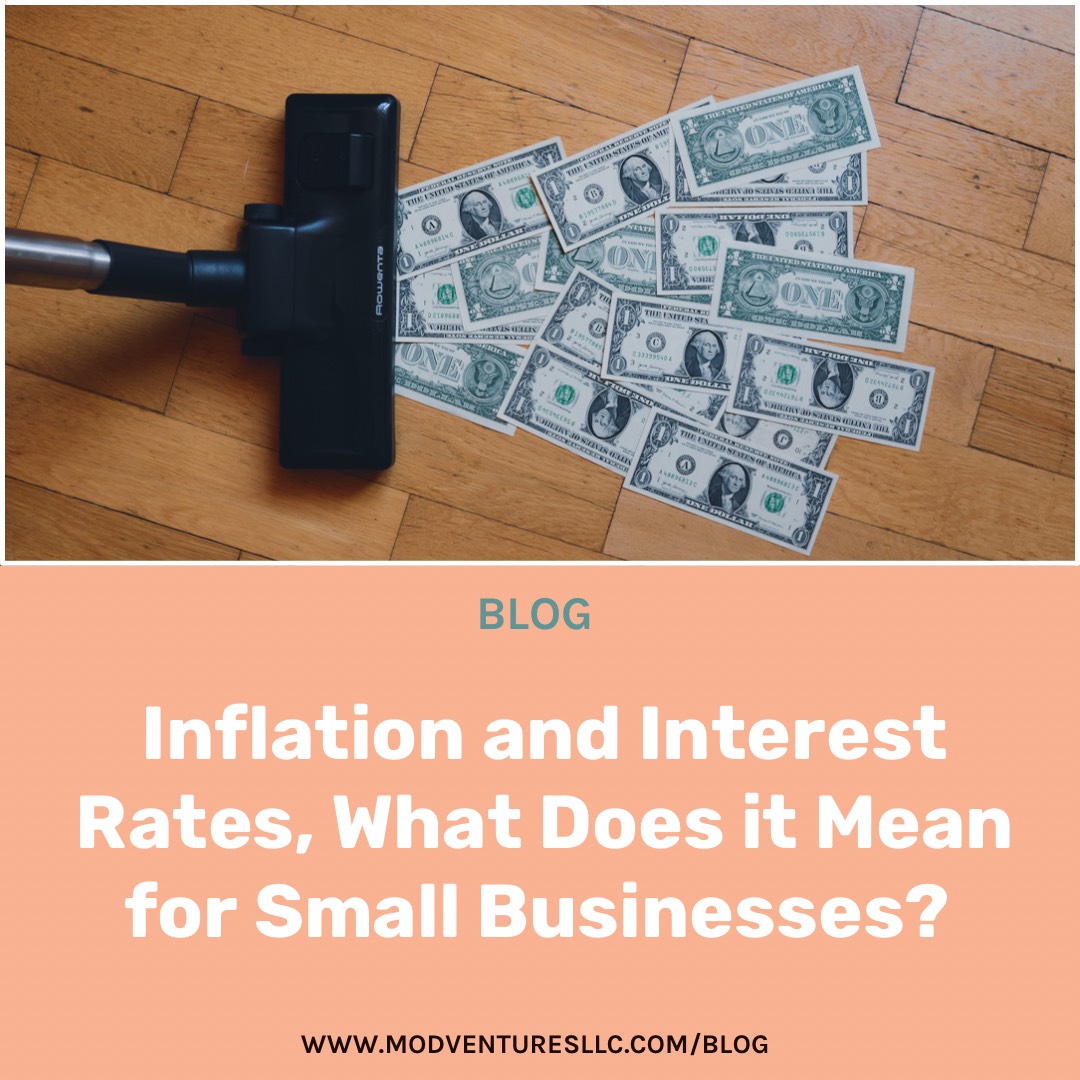Over the course of 2019 to 2021, the U.S. economy has experienced some of the highest increases in inflation rates. To counter and avoid further increases in inflation, the Federal Reserve has announced its plan to stop buying long-term securities and begin pushing short-term interest rates up in March of 2022.
What do these inflation and interest rates mean for small businesses? Higher-cost borrowing, slower growth in non-interest related businesses, less refinancing across the board, and more business-specific changes.
What is Inflation?
As defined by BusinessNewsDaily, inflation is“the rate at which the cost of goods and services rises over time.” As inflation rates increase, consumers can purchase less with the same dollar amount versus period prior. Inflation rates are typically calculated annually and are determined by the Bureau of Labor Statistics through referencing different financial and economic data and indexes.
The Federal Reserve aims to maintain an inflation rate near 2%, and when the rate gets higher than the 2% target, they take steps to slow economic growth – including raising interest rates as planned in March 2022.
Inflation and Small Businesses
Inflation is completely out of control for small business owners. Instead, small business owners should focus on preparing for the rise in prices of consumer goods. Here are a few ways to make it through periods of high inflation – the goal is to free up as much capital as possible:
- Re-evaluate your suppliers.
- Reduce debt.
- Consolidate and optimize business operations.
Analyze the federal funds rate before taking out a loan. If the federal funds rate is low, it’s a good time for a loan. If the federal funds rate is high, you should reconsider and re approach at another time.
Small Businesses and Higher Interest Rates
Most businesses will experience higher interest rates immediately after increases are made due to the monthly adjustment nature of most loan accounts. This is not necessarily enough to pause projects, but will carry over into other aspects of the business – such as an increase in expenses.
Other effects include a lighter sales growth due to slower economic growth across the board. Additionally, businesses could experience a recession if the Federal Reserve fails to adjust their programs at the right time.
When preparing for the rise in interest rates, slower economic growth, and threat of recession, small business owners should first focus on the specific impacts of higher interest rates. After that, look at preparations that can be made to counteract the threat of a recession. Take advantage of the good times and beginning of slower growth to prepare a plan to get through rough times.
How to Prepare for Higher Interest Rates and Inflation Aftermath
Small businesses have the benefit of easily identifying where their business is experiencing slower growth and the loans that have fluctuating interest rates. If there is a situation where the next step is unsure, investing in aconsultation session or Advisory Services should be considered.
You May Also Love
CLOSE






